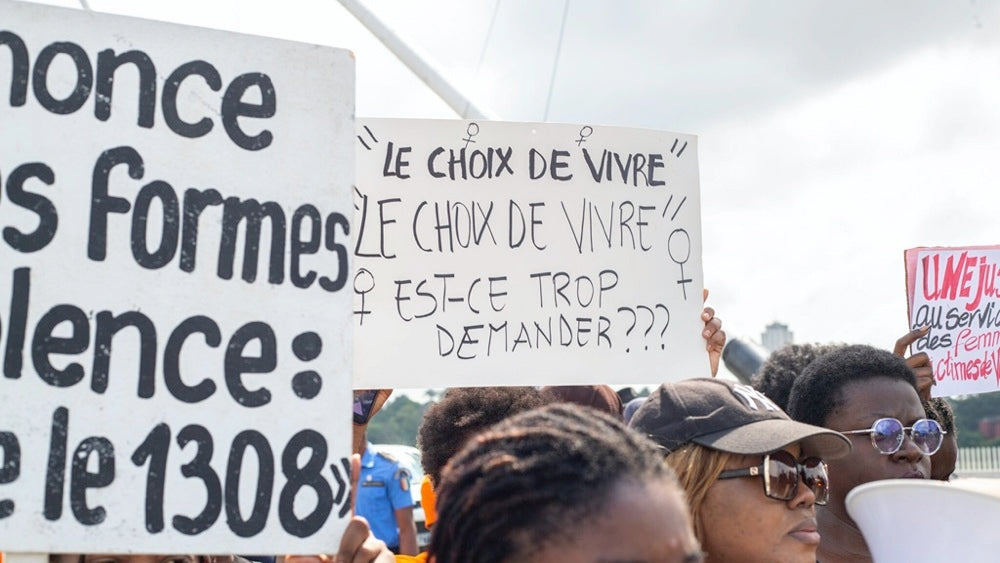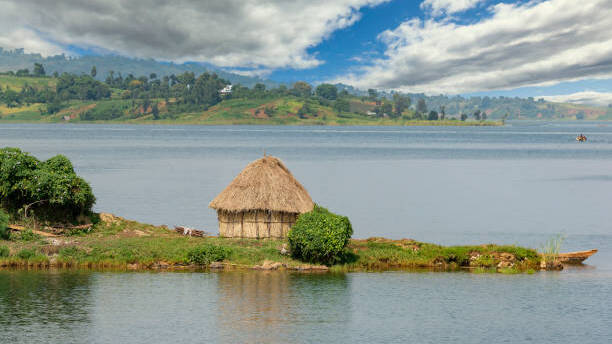
Femicides in Ivory Coast: A silent tragedy that kills in the shadows
In Côte d'Ivoire, femicides are on the rise, and Abidjan, the country's economic capital, has become the sad scene of this massacre. In 2020 alone, more than 416 women were killed because of their gender, according to a damning report. If you are not yet ready to face this sad reality, sit down, because what follows will make you want to scream.
The Ivorian League for Women's Rights (LIDF) no longer knows which way to turn. They have reached the point where, if their voice had a physical resonance effect, they would break the windows of ministries and courthouses, to shake up decision-makers. However, despite the cries of distress, the silence of the authorities remains deafening. Worse still, impunity is the norm. As if, in Côte d'Ivoire, killing a woman was ultimately just an inconvenience in daily life. Are you shocked? Us too.
Figures that make you sick
The numbers speak for themselves. In 2020 alone, Abidjan saw 416 women lose their lives in atrocious conditions, victims of femicide. And every year, the list of victims grows longer. One example among many: on September 11, 2024, the lifeless body of a 19-year-old woman was found in a furnished residence in Cocody, an upscale neighborhood of the city. Her alleged killer, a man with whom she was in a relationship, quickly confessed to having killed the young girl because she had stolen 500,000 FCFA from him. Yes, 500,000 FCFA, the equivalent of just under 760 euros. A life destroyed for a paltry amount.
And this case is just one of many. On April 10, 2024, a soldier on duty shot his wife dead before turning his weapon on himself, not without causing a national outcry. The day before, in the town of Maféré, a married woman was beheaded by her own husband, who fled before being captured in Ghana two days later.
A scourge rooted in impunity
Why do these atrocious crimes continue with worrying regularity? The Ivorian League for Women's Rights questions the culture of impunity that is eating away at the Ivorian justice system. Despite the laws in place, procedures are slow, if not non-existent. Convictions are rare, and the perpetrators of these crimes are often protected by a society where male domination is omnipresent. What you need to understand is that in many cases, justice is applied at a snail's pace, when it deigns to be applied at all.
And then there are the devastating attitudes towards the victims. In Côte d’Ivoire, gender-based violence has become so common that it no longer shocks many people. It is sad to say, but femicides, far from being isolated events, are only the ultimate expression of a system of structural violence against women. Behind each femicide, there are often years of domestic violence, beatings, humiliation and silent terror.
Victims imprisoned in their own homes
Take the case of Virginie (not her real name), a survivor of domestic violence. After seventeen years of hell, she finally found refuge at the Akwaba Mousso center, a haven of peace for women and children who are victims of violence. Do you imagine a warm home? Not really. This center is more of an emotional field hospital than a cozy nest. Virginie recounts her ordeal: physical and psychological violence, absolute financial control by her husband and constant surveillance. "I was not allowed to see my family or choose my friends. He decided everything."
For hundreds of women like Virginie, married life is more like a long agony than a fairy tale. The Akwaba Mousso center has welcomed 177 women and minors in one year. A figure that gives an idea of the extent of the scourge. But make no mistake, these women are only the visible tip of a much larger iceberg.
Femicides, the culmination of a violent system
Sociologist Dr. Annick Gnazalé, from Alassane Ouattara University, highlights a disturbing reality. For her, femicides are only the ultimate expression of systemic violence directed against women. And it is not only in Côte d'Ivoire, the situation is the same in most patriarchal societies. Social change is frightening, especially when it calls into question male privileges. "Women no longer accept being passive victims. They claim their freedom, and this sometimes provokes violent reactions, which can lead to femicides," she explains. When a woman stands up to assert her independence, she exposes herself to the worst.
The NGO CPDEFM, which works to defend women's rights, has compiled frightening data. In Abidjan alone, 416 femicides were recorded in 2020, and this figure does not seem likely to decrease. Behind each victim lies a story of extreme violence, often preceded by harassment, beatings, threats. In short, death is the logical end of a long process of daily brutality.
What is the government doing?
Good question. Côte d'Ivoire may have laws against gender-based violence, but their implementation leaves something to be desired. You can have the best law in the world, but if no one respects it, it's as if there were none. The real problem is impunity. Those guilty of femicide are rarely punished, and when they are, it is often with light sentences. As for the survivors, they find themselves alone, facing a society that makes them bear part of the responsibility.
The LIDF demands the legal recognition of femicide and the adoption of specific laws to protect women. But this is not enough. We need a complete overhaul of the justice system, and above all, a change in mentalities. Men must be educated, from a young age, to respect women. Otherwise, the wave of femicides will continue to surge.
Conclusion: A fight far from won
It is high time to act. Every day that nothing is done, one more woman risks losing her life. In Côte d'Ivoire, femicides are a symptom of a sick society, gangrened by patriarchy and violence. If the authorities continue to turn a blind eye, the blood will continue to flow. The real challenge is to break this vicious cycle, to put an end to impunity and to give women back the place they deserve: that of living, quite simply.



Leave a comment
This site is protected by hCaptcha and the hCaptcha Privacy Policy and Terms of Service apply.